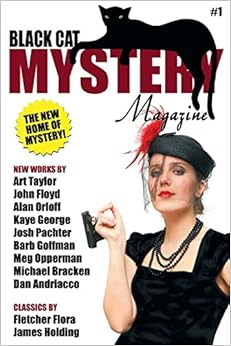Our class secretary, Orabeth White, asked me to read this poem at our alumni banquet.†
The Class Reunion
Every ten years, as summertime nears,
An announcement arrives in the mail,
A reunion is planned; it'll be really grand;
Make plans to attend without fail.
I'll never forget the first time we met;
We tried so hard to impress.
We drove fancy cars, smoked big cigars,
And wore our most elegant dress.
It was quite an affair; the whole class was there.
It was held at a fancy hotel.
We wined, and we dined, and we acted refined,
And everyone thought it was swell.
The men all conversed about who had been first
To achieve great fortune and fame.
Meanwhile, their spouses described their fine houses
And how beautiful their children became.
The 20th homecoming queen, who once had been lean
Now weighed in at one-ninety-six.
The jocks who were there had all lost their hair,
And the cheerleaders could no longer do kicks.
No one had heard about the class nerd
Who'd guided a spacecraft to the moon;
Or poor little Jane, who's always been plain;
Why she'd married a shipping tycoon.
The boy we'd decreed 'most apt to succeed'
Was serving ten years in the pen,
While the one voted 'least', now he's a priest;
Just shows you can be wrong now and then.
They awarded a prize to one of the guys
Who seemed to have aged the least.
Another was given to the grad who had driven
The farthest to attend the feast.
They took a class picture, a curious mixture
Of beehives, crew cuts and wide ties.
Tall, short, or skinny, the style was the mini;
You never saw so many thighs.
At our next get-together, no one cared whether
They impressed their classmates or not.
The mood was informal, a whole lot more normal;
By this time we'd all gone to pot.
It was held out-of-doors, at our lake shores;
We ate hamburgers, coleslaw, and beans.
Then most of us laid around in the shade,
In our comfortable T-shirts and jeans.
By the 50th year, it was abundantly clear,
We were definitely over the hill.
And those who weren't dead, had to crawl out of bed
But be home in time for their pill.
And now I can't wait; they've set the date;
Our 60th is coming, I'm told.
It should be a ball, they've rented a hall
At the Shady Rest Home for the old.
Repairs have been made on my hearing aid;
My pacemaker's been turned up on high.
My wheelchair is oiled, and my teeth have been boiled;
And I've bought a new wig and glass eye.
I'm feeling quite hearty, and I'm ready to party
I'm gonna dance 'til dawn's early light.
It'll be lots of fun; But I just hope that there's one
Other person who can make it that night.
— Author Unknown
 |
| photo courtesy of Debbi Ethridge Hanks (whose dad is very tall guy behind me,) |
As you can see by the photo that I wasn't the only one to show up at my 60th high school reunion in Post, Texas. (Post is 35 miles southeast of Lubbock.) It was a nice group of 21 from the class of '57.Thirty-three have passed away. There are three or four who were too sick to attend; fortunately two were minor illnesses. There are three who have never attended a reunion and we don't know if they are still alive.
We all had a grand time. Some of us attended the Post Antelope's football game on Friday night and met afterwards for coffee and doughnuts. Our banquet was on Saturday night There were many hugs and laughs and tears as we discussed our current lives and brought up the old days. Rumors were flying around the room faster than you could imagine about who did what in which class. We all denied the bad and laughed about the good. And the best part was we voted to do this all again in three years.
I'm so glad I got to go and look forward to 2020. Now surely I can come up with a good story from this adventure. In fact my travel buddy, Leslie who I've known since 2nd grade, fell as they were locking the door to the Fellowship Hall and severely broke her left arm. They took her to Lubbock by ambulance and she had surgery on Sunday. Her daughter came to Lubbock after her and brought her home. I had to drive back all by my self. Took me 7 hours from Lubbock because I stopped sever times to keep my legs and knees from getting stiff. (Leslie is the one in the photo in front, second from the end on the right. She's dressed in black and has very white hair. I'm in the front row, second from the left end in white capri pants in case you aren't sure about me.)
† Velma says Leigh insists articles contain elements of crime or writing. Let’s see… There has to be a criminal tale about someone getting a broken arm at a class reunion. Maybe along the lines of “It was a dark and stormy alumni night…” Plus there's that little dagger thingie.†


































